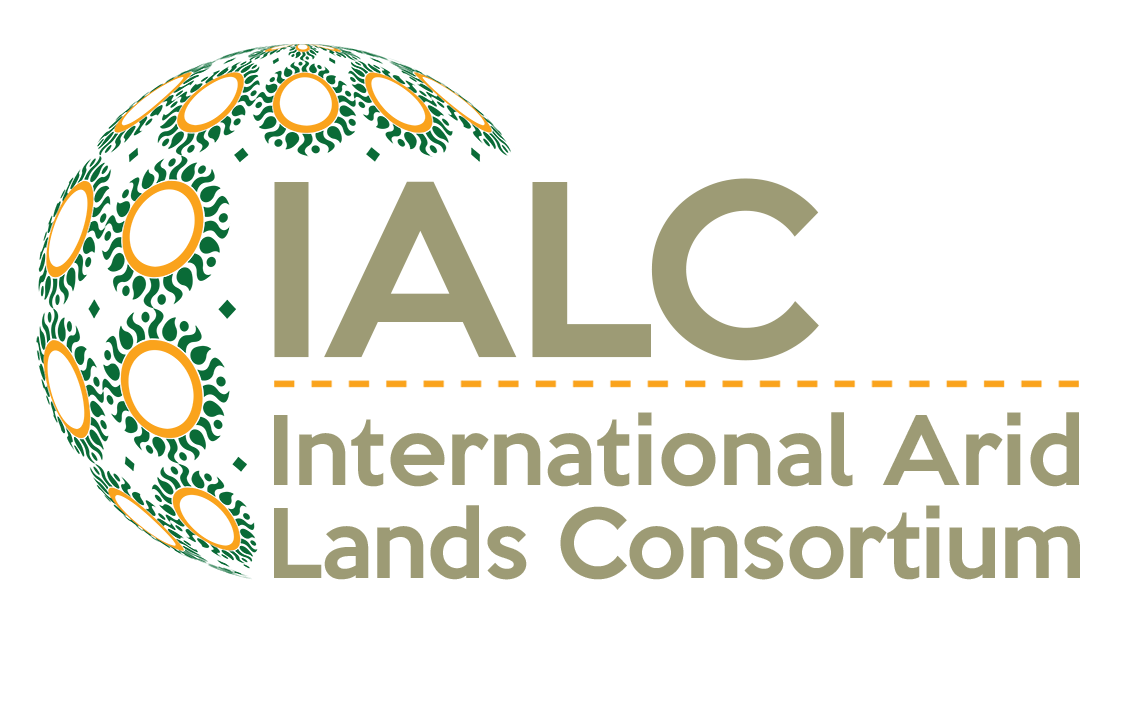International Arid Lands Consortium Studies the Feeding Habits of Desert Mule Deer and Nubian Ibex, Contributing to Wise Management of Desert Ecosystems
Researchers from New Mexico State University, The University of Arizona, and Ben Gurion University of the Negev conduct a 27-month project entitled, "Monitoring the Behavior of Desert Ungulates by Acoustic Telemetry."
November 1, 2000 (Tucson, AZ)--A component of arid and semi-arid ecosystems that interacts prominently with human activities on a world-wide basis has become the target of research supported by the International Arid Lands Consortium (IALC). Desert mule deer, in the southwestern United States, and the Nubian ibex in Israel are being studied for their feeding habits in research aimed at improving the management of desert ecosystems.
These wild animals, called ungulates, are medium and large-sized herbivores that influence ecosystem processes in ways that attract attention of land managers in desert areas. Accurate knowledge of their feeding habits is essential to wise management of desert ecosystems. Until recently, however, available techniques did not permit field monitoring of wildlife feeding behavior in real time. To overcome this constraint, the researchers will use "acoustic biotelemetry," which provides a potentially powerful means of accurately monitoring a wide range of detailed behaviors of wild mammals, and especially events associated with foraging. In preliminary experiments, feeding, drinking and other behaviors of ungulates produced characteristic sound signals that were diagnostic of specific behaviors and food types, and that were readily monitored with existing technology.
The researchers are developing an advanced, field-worthy acoustical biotelemetry system for remote monitoring of detailed feeding and other behaviors of freeranging wild ungulates. The system will be tailored to desert mule deer (Odocoileus hemionus eremicus) of the southwestern U.S. and Nubian ibex (Capra ibex nubiana) of desert landscapes in Israel. Subject animals will be equipped with microphone-transmitters and their sounds will be recorded with a suitable receiver-recorder system for subsequent interpretation and analysis.
Principal phases of the project include development of equipment configurations suited to monitoring sounds generated by captive and field animals of both species, assembly of a recorded catalog of captive mule deer and ibex sounds and video as a baseline for interpreting sounds recorded in the field, field application and refinement of the system with free-ranging subjects in natural habitats, and formulation of guidelines for future acoustic biotelemetry applications.
Captive animal experiments are performed at existing wildlife facilities at the University of Arizona for mule deer, and at Tel-Aviv University for Nubian ibex. The Physical Sciences Laboratory at New Mexico State University assists in acquisition, testing and upgrading of acoustic and electronic components; and in analysis and characterization of sound signals. Experimental field tests with freeranging subjects are being made in Sonoran Desert habitats in Arizona or eastern California for desert mule deer, and in the central Negev highlands for Nubian ibex.
The first year of the 27-month project will focus on equipment development, sound signal collection from captive animals, and development of signal collection and analysis protocols. The second year will comprise of simulated field tests with captive animals and final tests with free-ranging individuals in natural habitats.
This pioneering project is intended to develop a powerful, new technology for remotely monitoring the detailed behaviors of desert ungulates by sound. It will generate new insights on feeding and resource exploitation patterns of desert mule deer and Nubian ibex. It also will constitute a unique expansion of biotelemetry capabilities for animal research.
Support for this project came from the USDA Forest Service and the USDA Cooperative State Research, Education, and Extension Service.
#######
The International Arid Lands Consortium (IALC) is an independent nonprofit organization dedicated to exploring the problems and solutions unique to arid and semiarid regions. IALC promotes cooperative research and practical application of new knowledge to develop sustainable ecological practices. The member institutions and their affiliates share a mission to enable people of arid lands to improve the quality of life for future generations. IALC members include the University of Arizona, Desert Research Institute-Nevada, the University of Illinois, Jewish National Fund, New Mexico State University, South Dakota State University, Texas A&M University-Kingsville, and the Higher Council for Science & Technology-Jordan. The Ministry of Agriculture & Land Reclamation-Egypt is an affiliate member
Project Addressed in this News Release:
- 00R 07 Monitoring the behavior of desert ungulates by acoustic telemetry (New Mexico State University, University of Arizona, Ben Gurion University of the Negev)

